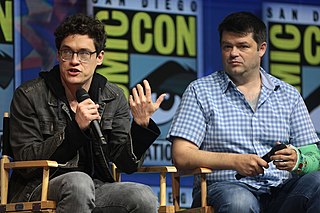A Quote by David Berman
Language is virtually always pathological; hence the solution is to move as fast and far as possible from language to experience, from linguistic to experimental or psychological philosophy. In order to know that we are not in the linguistic maze, we need to determine, according to Berkeley, whether the things we are talking about exist; hence we need to look for the relevant perceptions. For him, this usually means retiring into himself and trying to imagine whether x exists, having formed the best definition possible of x.
Quote Topics
About
According
Always
Berkeley
Best
Definition
Determine
Exist
Exists
Experience
Experimental
Far
Fast
Formed
Having
Hence
Him
Himself
Imagine
Know
Language
Linguistic
Look
Maze
Means
Move
Need
Order
Pathological
Perceptions
Philosophy
Possible
Psychological
Relevant
Retiring
Solution
Talking
Things
Trying
Virtually
Whether
Related Quotes
Man is the namer; by this we recognize that through him pure language speaks. All nature, insofar as it communicates itself, communicates itself in language, and so finally in man. Hence, he is the lord of nature and can give names to things. Only through the linguistic being of things can he get beyond himself and attain knowledge of them-in the name. God's creation is completed when things receive their names from man, from whom in name language alone speaks.
You can imagine a different world in which a number of species developed with different genetically determined linguistic systems. It hasn't happened in evolution. What has happened is that one species has developed, and the genetic structure of this species happens to involve a variety of intricate abstract principles of linguistic organization that, therefore, necessarily constrain every language, and, in fact, create the basis for learning language as a way of organizing experience rather than constituting something learned from experience.
I started my professional life as a philosopher of language and for several years took the orthodox line that meaning is an essentially linguistic phenomenon. Whether as a result of simply listening to everyday talk about meaning, or reading books of anthropology, sociology and art history, it dawned on me that there is nothing at all privileged or central about linguistic meaning.
English general and singular terms, identity, quantification, and the whole bag of ontological tricks may be correlated with elements of the native language in any of various mutually incompatible ways, each compatible with all possible linguistic data, and none preferable to another save as favored by a rationalization of the native language that is simple and natural to us.
Language is inherently not concerned with logic. As an expression of the psychological activities of humankind, it simply follows a linear process as it seeks actualisation. Moreover, it does not obey the objective concepts of time and space that belong to the physical world. When the discussion of time and space is imported into linguistic art from scientific aims and research methods, that linguistic art is entirely reduced to trifling pseudo-philosophical issues.
The moment we shake our addiction to narrative and give up our strong-headed intent that language must say something "meaningful," we open ourselves up to different types of linguistic experience, which could include sorting and structuring words in unconventional ways: by constraint, by sound, by the way words look, and so forth, rather than always feeling the need to coerce them toward meaning.
Sexuality is primarily a means of communicating with other people, a way of talking to them, of expressing our feelings about ourselves and them. It is essentially a language, a body language, in which one can express gentleness and affection, anger and resentment, superiority and dependence far more succinctly than would be possible verbally, where expressions are unavoidably abstract and often clumsy.



































